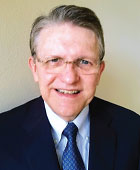The Rewards of Thinking Like a Generalist
Abstract
Subspecialty psychiatry will no doubt continue to provide increasingly effective levels of care to our patients, but the best practice may be approaching the diagnosis of every new patient as a generalist.
Psychiatry is becoming more subspecialized as our knowledge and database grow. Fellowships, once rare outside of child and adolescent psychiatry, are now almost standard, and the general psychiatrist may be fading into history. After describing myself as such for well over 30 years, I reflect on the term’s accuracy and value.
Tech and business leaders also debate the relative merits of generalists versus specialists, leading to terms such as deep generalist. Interest and strength in several areas have been proposed to foster creativity through paradigm shifts that specialists may not recognize, due to cognitive biases. In his recent book Range, David Epstein highlights how specialists in one research domain add to their creativity and problem-solving skills by learning about other fields, instead of super specializing in their original one.
Early in my career, I was identified by my colleagues as having special knowledge and success managing patients with bipolar disorder, and for decades I received many referrals to treat these patients. I worried, however, that accepting and identifying myself as a subspecialist in bipolar disorder, or any other diagnosis, would limit my exposure and experience with other problems and reinforce any diagnostic biases I might increasingly become unaware of. As a result, I struggled to prove that every patient who came to me for evaluation did not have bipolar disorder, unless I was overwhelmed with evidence to the contrary and no rational alternative could possibly apply. I have maintained my identity, internally and to the world, as a generalist and believe this has served my patients well.
An oft-repeated adage famously states that if a person has only a hammer, everything looks like a nail. Amos Tversky and Daniel Kahneman identified and studied heuristics, illogical shortcuts the human brain uses to make assessments. For example, the availability bias relies on immediate examples that come to mind when evaluating a specific topic, concept, method, or decision, heavily weighing more recent information. In a similar fashion, the representativeness heuristic occurs when we make judgments on the basis of similarity, incorrectly finding causal relationships between things that resemble one another and missing them when the cause and effect are very different. And the illusion of validity heuristic leads us to overestimate to the accuracy of our expert assessments. Limiting practice to a few diagnoses is fertile ground for these and other unconscious errors in logic.
As evidence-based practice grows, subspecialty psychiatry will no doubt continue to provide increasingly effective levels of care to our patients. The best practice, though, may be struggling to approach the diagnosis of every new patient as a generalist. Our unconscious expert minds will be yearning to rely on heuristics and narrowed perception, but we work best when we are consciously aware of these biases and actively work to oppose them. Not every problem is a nail, after all; not every patient coming to us has just the diagnosis we like to see. ■




